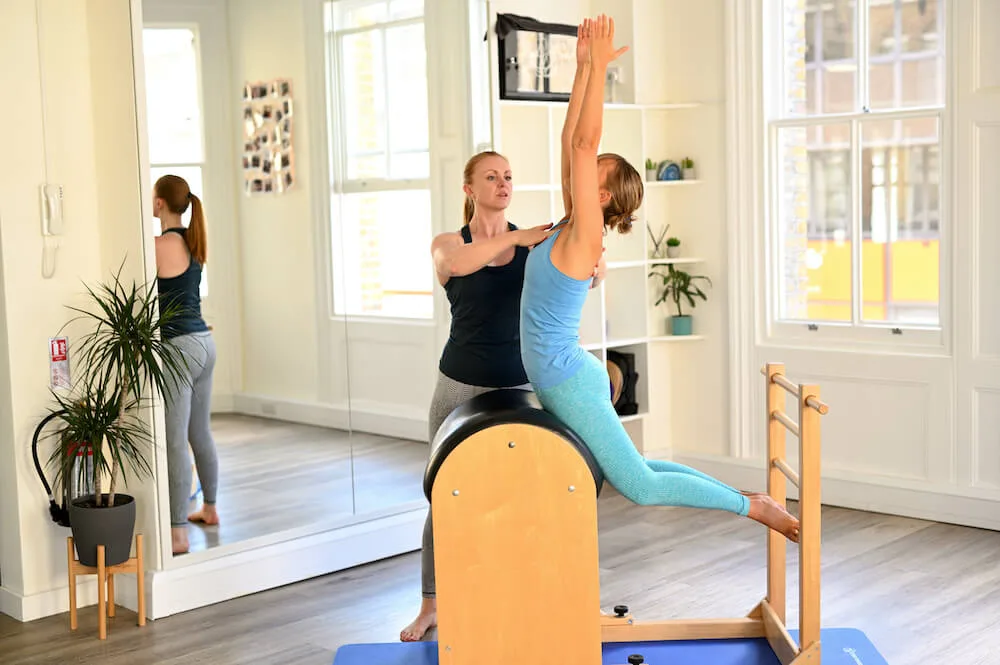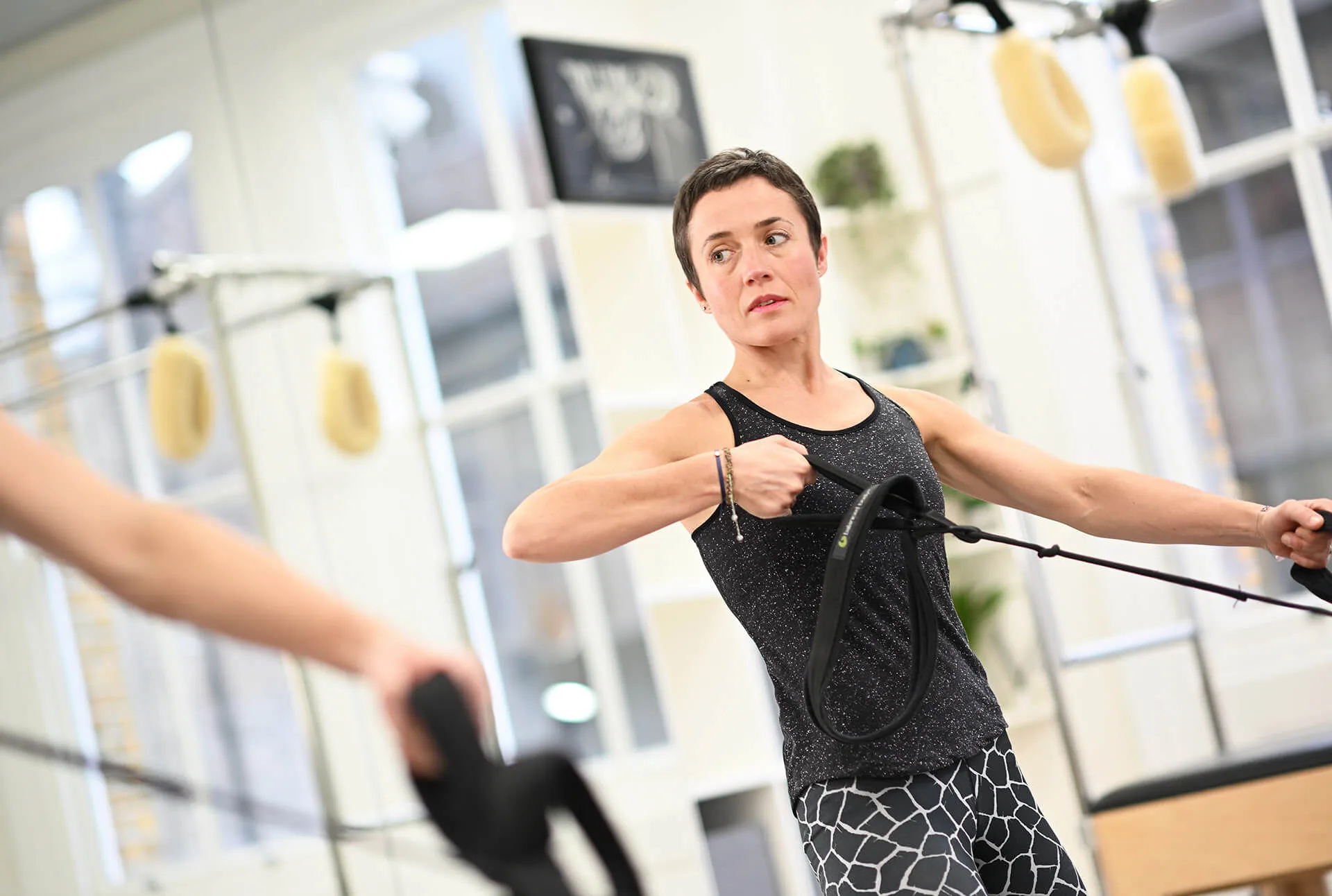Key Contributor: Dionne Appiah, Clinical Pilates Instructor
At Complete Pilates we are often asked by our clients “how many times a week should I work out?” and ‘’how often should I do Pilates?’’
Exercise is an essential component of improving and maintaining a healthy, balanced life. The benefits of exercise include, but are not limited to, improved brain and mental health, weight management, reduced risk of disease, improved strength of muscles and bones, and an increased ability to do everyday activities.
Whether you’re looking to add new exercise into your regime, such as Pilates, or whether you’re just starting out, it’s important to understand how many times a week you should be working out to reap all the wonderful benefits of exercise.
First, it’s important to consider your own exercise goals and what your current baseline is. Your goals will dictate what the recommendations for you are and your baseline will help determine a safe and healthy starting point. When we consider how often people should do Pilates, we always answer this with an understanding of individual goals and baseline exercise levels.
We believe Pilates should be one part of a wider exercise program that includes strength and cardiovascular training. Because Pilates is a low impact exercise, it can be done more frequently than other forms of exercise as it doesn’t require as much recovery between sessions. If Pilates is your only form of exercise, we recommend 2-3 sessions per week, ideally with a mix of equipment Pilates and mat-based Pilates. If you are already participating in other higher intensity exercise such as going to the gym or running, you might consider adding in 1-2 sessions of Pilates per week to complement your regime.
In this article we explore in more detail how often you should work out per week and the positive effects of different forms of exercise.

How often should I workout for my general health?
There are some general guidelines from the NHS that we should all be aiming to adhere to for the health of our heart, lungs and our body as a whole. The NHS in England advises that adults should take part in physical exercise every day. This can be any form of physical activity, some is better than none and more is even better!
Over the course of a week you should be aiming for either;
- 150 minutes of moderate exercise.
or - 75 minutes of more vigorous exercise.
Remember variety is the spice of life! Our bodies respond best to a mixture of different types of exercise and different intensities, consider this in your weekly schedule.
How many times a week should I do Pilates?

We’re frequently asked, ‘how often should I do Pilates.’ Most clients at Complete do Pilates 1-2 times per week plus some home Pilates exercises or group online classes.
At Complete Pilates we provide one-to-one initial assessments with every client that we see so that we can fully understand you and your body as well as your goals. We then put together a program that is achievable and realistic for you and will give the most effective results. Pilates exercise is considered a low-impact strength exercise, which means it can be included in your 3 times per week recommendation for strength exercise.
We consider Pilates as a component of your wider exercise program, so we’ll cover general exercise later in this article. You need to make sure that you are including some of each component in your weekly program so that you are getting the full benefit of exercising regularly. We have taken a look at each component of an effective exercise program and will tell you how often you should be doing them each week.
What do our experts say?
Pilates can be a very effective type of exercise to implement into your exercise routine as it is low impact. It can be a great form of exercise for beginners as it can be done more frequently with less recovery time. If you already have an exercise program or take part in high intensity training, Pilates is the perfect way to supplement your program for strengthening and injury prevention.
How many times a week should I be strength training?

Strength training should be included for everyone! This includes groups, such as women, who may not have prioritised strength training in the past. It can be any form of exercise where you are working your muscles to fatigue. Usually this will involve using weights or machines that add weight for resistance. It can also include working with your body weight such as push-ups, pull ups and Pilates!
Strength training has so many benefits;
- Function better in daily activities
- Perform better in sport
- Protect bone health
- Prevent injury
- Prevent falls that lead to injury
- Aids weight loss
The NHS guidelines recommend including strength training on at least two days per week. The research tells us that to see progress with strength training, i.e. to get stronger, you should do at least three sessions per week where you work the muscles to fatigue. This will depend on your baseline and you may need to build up to this if you are doing no strength training to start with.
Strength training should be progressive so that you are not doing the same thing over and over but trying to do more or to do heavier weights. It can also be progressed by changing the exercises so that you are challenging your body in different ways.
Ideally you would see someone for a one to one assessment to get the most benefit for you and your body from your strength training.
How many times a week should I be doing cardio?

What is cardio? It is any form of exercise that challenges your cardiovascular system – your heart and lungs. This ensures not only the health of your heart and lungs but the rest of your organs with effective transfer of oxygen and blood travelling to those organs. This allows your organs, muscles, and the whole of your body to function healthily and effectively.
This kind of exercise can have significant effects on disease prevention including diabetes and cancer. It is also important as part of a structured program for weight loss.
So, what should you do? Again, variety is key! This kind of exercise could include;
- Walking
- Running
- Skipping
- Playing tennis
- Dancing
- Football
Anything where you feel your heart rate rise and your breathing rate increase. Varying the intensity here can be helpful such as interval training, HIIT training or circuit training. This means you work hard for a short period and then easier and repeat. This is useful both if you are someone who exercises regularly or a beginner to exercise.
We are often asked how many times a week should I be doing a spin class or a HIIT session and these fit into this cardio category. At least 30 minutes of cardio at least three times a week is great. If you are doing more that is fine as long as you vary the workouts for maximum benefit and give yourself at least one rest day a week.
How many times a week should I exercise if I’m pregnant?
We see a lot of pregnant clients at Complete and we are often asked if the advice changes when you are pregnant. In short, no it doesn’t! The advice is the same if you are pregnant; the Royal College of Midwives and of Obstetricians recommend exercise throughout pregnancy. As always, this will depend on your baseline and what your body is used to but for the majority of pregnant women it will be essential to keep active and exercising. This will ensure a healthy pregnancy for you and your baby.
You still want to be working out for 150 minutes per week of moderate exercise and including some strength training.
Pilates is a great option when you are pregnant whether or not you are used to exercising. You can find our more about the benefits of Pilates for pregnancy here.
How many rest days a week should I have?
You must not forget about rest and recovery! This is when your body reaps the benefit of the exercises, rebuilds and gets stronger. This should be one to two days a week where you are not doing the harder forms of exercise and you are recovering. It can be active so can include walking or gentle Pilates or restorative yoga or perhaps swimming.
Key takeaways for weekly Pilates and workouts
Get the minimum 150 minutes per week of moderate exercise for your heart and lungs. This will ensure your overall health and wellbeing and can help to prevent disease and injury. This should be the cardio type of exercise and should ideally be specific to you, your fitness level and your goals.
Add strength training on at least two days per week to see progression with your strength. This will depend on your goals and your baseline level of strength and training.
Get plenty of variety in your workouts each week.
Rest at least one day a week to allow recovery of your body.
Seek professional advice for a specific program for you and your needs.
Get in touch with us here at Complete Pilates, we have both the physiotherapy training and exercise training to help you achieve your goals. We can work alongside your strength and conditioning coach or refer you to our in-house team.
Get in Touch
Get in touch with us here at Complete Pilates, we have both the physiotherapy training and exercise training to help you achieve your goals. We can work alongside your strength and conditioning coach or refer you to our in-house team.
Book an appointment at one of our Pilates studios in London. Come and try Pilates in the City of London, or any of our studios (see our Kensington Pilates studio or Islington Pilates studio) for more information, please get in touch online or contact us on 0203 764 5668.
Resources
- NHS exercise advice – https://www.nhs.uk/live-well/exercise/
Education is key:
These blogs are designed to give information to everyone, however, it is important to remember that everyone is different! If you have not seen one of our therapists and have any questions about injuries, what you have read or whether this may be useful to you, please just ask. We are more than happy to help anyone and point you in the right direction. Our biggest belief is that education is key. The more you understand about your injury, illness and movement, the more you are likely to improve.




